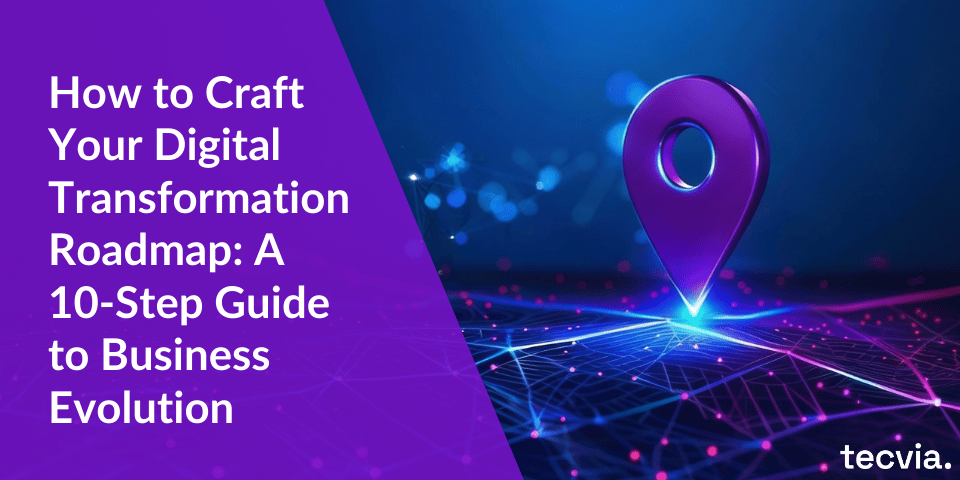Is On-Premise ERP Dead? Exploring the Future of ERP for SMEs
For SMEs (Small and Medium Enterprises), choosing the right ERP solution is critical to driving efficiency, scalability, and growth. But with the rise of cloud-based solutions like Microsoft Dynamics 365 Business Central, Is on-premise ERP dead?
From our perspective at Tecvia, the shift from on-premise to cloud-based ERP systems is one of the most significant topics in business technology today. SMEs are increasingly embracing the cloud’s flexibility, scalability, and cost-efficiency. But, does this mean on-premise ERP is outdated?
In this blog, we’ll explore the pros and cons of both approaches, examine why cloud-based ERP is gaining momentum, and share our insights on what this means for SMEs.
The Rise of Cloud-Based ERP
Cloud-based ERP systems, such as Microsoft Dynamics 365 Business Central, have become a game-changer for SMEs. These solutions run on remote servers and can be accessed via the Internet, removing the need for costly on-premise systems.
For SMEs, the benefits of cloud-based ERP are hard to ignore:
1. Cost Efficiency
On-premise ERP systems often have major upfront costs, including hardware, software licences, and IT staff to maintain them. In contrast, cloud-based ERP runs on a subscription model, spreading costs over time and making it more accessible for SMEs with limited budgets. In fact, a study by IDC found that a cloud-based ERP can reduce IT costs by up to 30% compared to on-premise solutions.
2. Scalability
As your business grows, so do your ERP needs. Cloud-based solutions allow you to scale up or down effortlessly, adding new users or features as required. This flexibility is especially useful for SMEs facing rapid growth or seasonal changes.
3. Accessibility
With cloud-based ERP, your data and applications are accessible from anywhere with an internet connection. This is a game-changer for businesses with remote teams or multiple locations, enabling seamless collaboration and real-time decision-making.
4. Automatic Updates
On-premise ERP systems often require manual updates, which can be time-consuming and disruptive. On the other hand, cloud-based solutions are automatically updated by the provider, ensuring you always have access to the latest features and security patches.
5. Enhanced Security
Unlike common misconceptions, cloud-based ERP systems offer superior security to on-premise solutions. To protect your data, providers like Microsoft invest heavily in advanced security measures, including encryption, multi-factor authentication, and regular backups.
Is On-Premise ERP Dead?
While cloud-based ERP is no doubt on the rise, it would be premature to declare on-premise ERP completely dead. There are still cases where on-premise solutions may be preferable:
1. Data Sensitivity
Some businesses, particularly those in highly regulated industries, may prefer to keep their data on-premise for greater control and compliance reasons.
2. Internet Reliability
On-premise ERP may be a more practical option in areas with unreliable internet connectivity.
3. Legacy Systems
Many businesses that have invested heavily in on-premise infrastructure may be slow to move to the cloud, at least for now.
That said, the trend is clear: cloud-based ERP is becoming the preferred choice for the majority of SMEs. The flexibility, cost savings, and scalability it offers are simply too compelling to ignore.
Comparison Table: On-Premise vs Cloud-Based ERP
| Feature | On-Premise ERP | Cloud-Based ERP |
| Cost | High Upfront Costs | Subscription-based, Lower Upfront Costs |
| Scalability | Limited | Highly Scalable |
| Accessibility | Restricted to on-site access | Accessible from anywhere with internet |
| Updates | Manual Updates Required | Automatic Updates |
| Security | Dependent on Internal IT | Advanced Security by Providers like Microsoft |
ERP for SMEs – Making the Right Choice
When choosing an ERP system for your SME, it’s essential to consider your unique needs, budget, and long-term goals. Here are a few key factors to keep in mind:
- Total Cost of Ownership (TCO): Consider both upfront and ongoing costs, including maintenance, upgrades, and training.
- Scalability: Choose a solution that can grow with your business.
- Integration: Ensure the ERP system integrates seamlessly with your existing tools and software.
- Support and Training: Look for a provider that offers robust support and training resources.
For most SMEs, a cloud-based ERP solution will be the best fit. It offers the perfect balance of functionality, affordability, and ease of use, making it an ideal choice for businesses looking to excel in the digital age.
Our Thoughts- The Future of ERP Is in the Cloud!
While on-premise ERP isn’t entirely dead, its relevance is fading fast. For SMEs, the benefits of cloud-based ERP- cost efficiency, scalability, accessibility, and security – are simply too significant to ignore.
Solutions like Microsoft Dynamics 365 Business Central are leading the charge, helping businesses to streamline their operations, make smarter decisions, and achieve sustainable growth.
If you’re still relying on an on-premise ERP system, now is the time to consider making the switch.
Microsoft Dynamics 365 Business Central: A Game-Changer for SMEs
When it comes to cloud-based ERP for SMEs, Microsoft Dynamics 365 Business Central stands out as a leading solution. Designed specifically for small and medium-sized businesses, it offers a complete suite of tools to manage finances, operations, sales, and customer service—all in one platform.
Key Benefits of Microsoft Dynamics 365 Business Central
- Seamless Integration: Business Central integrates effortlessly with other Microsoft products, such as Office 365, Power BI, and Teams, creating a connected ecosystem for your business.
- User-Friendly Interface: With its intuitive design, Business Central is easy to use, reducing the learning curve for your team.
- AI-Powered Insights: Leverage AI and machine learning to gain practical insights and make data-driven decisions.
- Customisation: Tailor the system to meet your business needs, ensuring it grows with you.
For SMEs looking to modernise their operations and stay ahead of the competition, Microsoft Dynamics 365 Business Central offers an exciting solution. Microsoft reports that 85% of businesses using Dynamics 365 Business Central saw improved collaboration and productivity within six months of implementation.
Ready To Scale Up?
At Tecvia, we specialise in helping SMEs navigate the complexities of ERP implementation. Whether you’re considering a move to the cloud or simply want to explore your options, our team is here to help.
Contact Tecvia today for a free consultation. Learn how cloud-based ERP can help your small business grow and work better.
Recommended Reading
The Future of ERP: 10 Key Trends Shaping Enterprise Resource Planning in 2025 and Beyond


